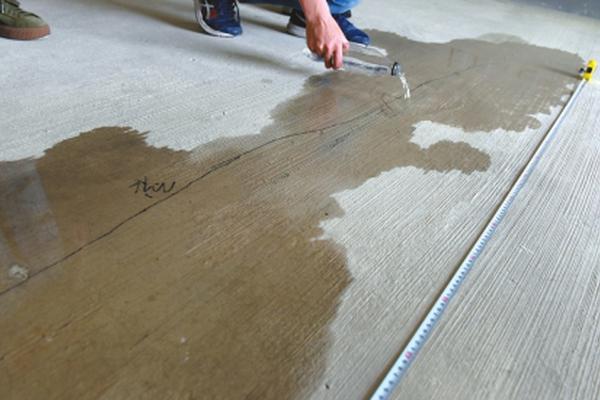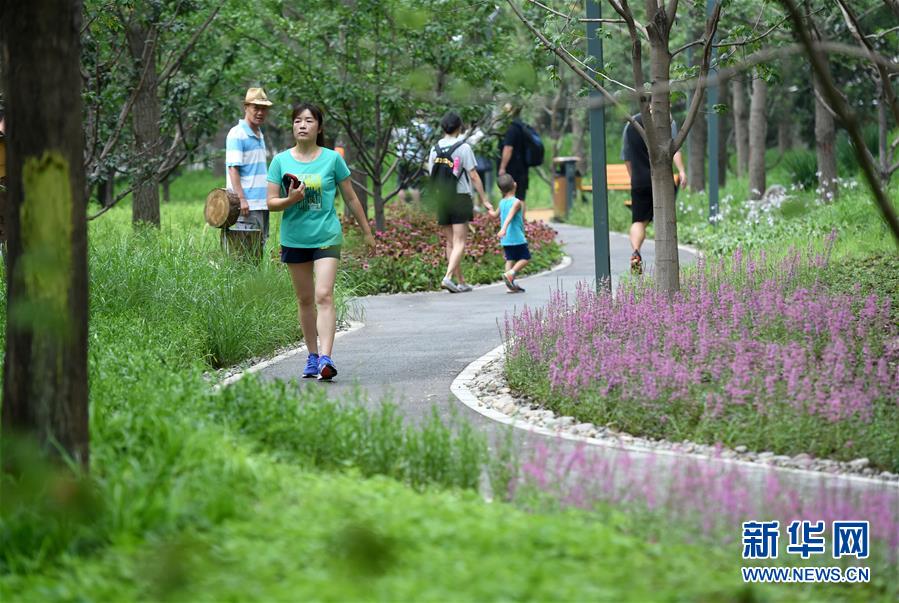
By JUDD MATSUNAGA, Esq.
I recently spoke with a retired attorney who said, “I enjoy reading your Rafuarticles, but most of them don’t seem to be about the law.” True. Here’s why — I once heard someone say that “The best way to help someone is not as the righteous preacher speaking down to the lowly sinner, but as one homeless man to another homeless man, telling him where to get a warm meal.”
I’m planning to live to 100. How about you? So, I read up on some of the latest studies in the medical journals. I also review blogs from doctors and gerontologists looking for ways to increase your “health span” (better than just a “life span”) and lower the risk for age-related cognitive decline and brain diseases. Then, as one senior citizen to another, I try to share things that will help an aging Rafu Shimpocommunity.
Last year, I met with my oldest client (a Japanese lady). At 108 years old, she was walking without assistance and her mind was still there. So, I know living to 100 in good health is possible. I asked her what her secret was. She smiled and said, “I don’t worry about anything.” The two daughters laughed and said, “She’s going to outlive us. We do all the worrying for her.”
Human life expectancy has grown spectacularly, thanks to advances in public health and medicine. We are living longer than ever before. While age may bring with it a wealth of benefits, e.g., wisdom and knowledge, a sense of accomplishment, and an extended family of children and grandchildren, advancing years also bring an increased risk for major medical
conditions.
Brain diseases are a particular concern. One in three older adults dies with Alzheimer’s or another form of dementia, and many more people suffer from general age-related cognitive decline. According to the World Health Organization, by 2030, half of the worldwide economic impact of disability will come from brain-related problems.
The good news is that declining brain health and cognitive loss are not inevitable. Researchers at Harvard Medical School have identified six cornerstones to any effective brain health and cognitive fitness program. Although they are referred to as “steps,” they should all be done together rather than sequentially:

STEP 1: Eat a plant-based diet.
STEP 2: Exercise regularly.
STEP 3: Get enough sleep.
STEP 4: Challenge your brain.
STEP 5: Nurture social contacts.
STEP 6: Manage your stress.
Since past (and future) Rafu Shimpoarticles have addressed diet (Step 1), exercise (Step 2), sleep (Step 3) and stress (Step 6), the remainder of this article will focus on Step 4: Challenge your brain. A Part 2 future article will cover Step 5: Nurture social contacts. If you can make the recommended changes, you can start improving your brain health and cognitive fitness today. (Source: Harvard Medical School, Special Health Report, A Guide to Cognitive Fitness)
STEP 4: Challenge Your Brain
You’ve likely seen the phrase “train your brain” many times. Several websites offer brain-training activities, which some of them claim are scientifically proven to make you smarter and sharper. But do they work?
There is evidence that the more you stimulate and challenge your brain — and the earlier you begin that stimulation — the more of a buffer you’ll create against the detrimental effects of aging. Participating in intellectually challenging activities promotes brain plasticity and fosters the process of neurogenesis — the birth of new neurons in your brain.
People who have led more intellectually robust lives thanks to their education, work, and leisure activities have more cognitive reserve and appear to face a lower risk of developing dementia as they age. Although they may still develop Alzheimer’s plaques and tangles in their brains, they are better able to cope with and compensate for the disease’s effects.
The cardinal rules of mental stimulation:
Ideally, you want to start stockpiling cognitive reserve in your youth and continue the process throughout your lifetime. But regardless of your age, educational level, or career, you can still build reserve today by constantly learning new things and challenging yourself. Like physical exercise, mental stimulation and mentally engaging activities do not need to be costly.
Almost everything you do can become mental exercise if you pay attention to it and try to get better at it. Three guiding principles — the cardinal rules of mental stimulation — will help you achieve success.
RULE #1:Try something new. Continually expand your horizons by trying new experiences that fall outside your comfort zone. If you’re a literature buff, don’t limit yourself to reading, but also try something different, like a painting class. If you’ve never been much of a cook, enroll in a culinary class. Particularly helpful can be learning a new skill, such as gardening, a new language, or a musical instrument. Each time you expand your expertise, you forge new neural networks.
RULE #2:Challenge yourself. If you have a favorite activity, continue to increase the level of difficulty. If you do a daily crossword puzzle, choose progressively harder puzzles. If you’re taking language classes, try to read entire books in that language or engage in conversation with a fluent speaker. Only by continually challenging your mind will you build cognitive reserve.
RULE #3:Vary your cognitive workouts. Whether you’re training your brain or exercising at the gym, you will benefit the most by cross-training. Just as the ideal physical training program combines aerobic activity for your heart with strength training for all the major muscle groups — arms, legs, back, and abs — you want brain training to work all parts of your brain. To do this, you need to vary your cognitive workout. Instead of doing crossword puzzles every day, play bridge one day and attend an art class the next. See a play, visit a museum, and take music lessons. Keep introducing new activities to maximize your mental workout.
If you’re looking for some easy ideas to help kick-start your cognitive training routine, try the activities below:
Puzzles.One of the easiest ways to flex your mental muscles is by filling in the daily newspaper
crossword puzzle or working on a Sudoku. For the best results, however, remember the third cardinal rules of mental stimulation. Do different kinds of puzzles — for example, a crossword one day, Sudoku the next, and a word jumble the next day. As you master one type of puzzle, increase the difficulty level.
Language study.Learning a second language can delay cognitive decline by as much as five years. Don’t assume that it’s too late for you to learn Spanish, German, or Japanese. Although children are quicker than adults at acquiring new languages, people can become conversational at any age. Bilingual people possess greater mental flexibility and agility, and they appear to have some protection from the risk of developing dementia. The benefits may be greater for those who learn their second language early in life than for those who learn it later.
Card and board games. Research finds that people in their 70s who often play cards, chess, or bingo score higher on memory and thinking tests than those who don’t partake in these activities.
Checkers and chess also require you to strategize, as you continually have to figure out your next move in relation to your opponent. There is also evidence that regular game-playing might have an impact on future memory.
Travel.Visiting a new place can yield many rewards. Exposure to new sights, sounds, and even smells also enhances brain plasticity, forming new connections in your brain. Travel abroad is especially beneficial, because you have the added challenges of communicating in another language and making your way in a different culture. To maximize your travel experience, stray away from your hotel and the big tourist attractions and try to engage with the local community. As long as you interact with people and have new experiences, you’ll have something to gain cognitively.
Plays, films, concerts, and museums.Cultural activities are both enriching and intellectually stimulating, especially when you incorporate learning into the experience. For example, as you walk through a museum, read the descriptions next to each painting to learn about the artist, medium, and style. Take a tour led by an experienced museum guide or participate in a question-and-answer session with an artist.
When choosing an event, pick something that requires a little more effort on your part. For example, see a foreign film and try to discern what the characters are saying without reading the subtitles.
Music.Listening to a favorite song can immediately improve your mood and increase your energy level. Certain songs can transcend time and space, transporting your mind back to when you first heard them. Music even has the power to reach areas of the brain damaged by dementia.
Singing may be the simplest way to get started, and learning how to play an instrument are both ways to challenge your mind through music. Dancing or moving to music has added benefits, because these activities provide the dual benefits of music and physical exercise, and they are fun ways to socialize.
In conclusion, for the greatest mental boost, mix and match the above activities, and combine them with the other strategies outlined in the beginning of this article, i.e., exercise, diet, sleep, stress relief, and social interaction.
Finally, the earlier you start, the better. Evidence suggests that the more cognitively fit you are throughout your life, the better armed your brain will be against the assaults of aging.
——————–
Judd Matsunaga, Esq., is the founding partner of the Law Offices of Matsunaga & Associates, specializing in estate/Medi-Cal planning, probate, personal injury and real estate law. With offices in Torrance, Hollywood, Sherman Oaks, Pasadena and Fountain Valley, he can be reached at (800) 411-0546. Opinions expressed in this column are not necessarily those of The Rafu Shimpo.
 LTroots Halloween Party
LTroots Halloween Party
 Greta Gerwig's 'Little Women' first reactions: An original take on a beloved classic
Greta Gerwig's 'Little Women' first reactions: An original take on a beloved classic
 California power blackouts start *again* to avert sparking fires
California power blackouts start *again* to avert sparking fires
 If you own an iPhone 5, you'd better update your iOS right now
If you own an iPhone 5, you'd better update your iOS right now
 karrigan on beating NAVI: "It literally felt like a playoff game"
karrigan on beating NAVI: "It literally felt like a playoff game"
 'Hey teens buckling up is totes yeet yo': Cringey highway signs might be backfiring a bit
'Hey teens buckling up is totes yeet yo': Cringey highway signs might be backfiring a bit
 The historical tragedy of ‘Catherine the Great’s mysterious prisoner
The historical tragedy of ‘Catherine the Great’s mysterious prisoner
 'Saturday Night Live' announces Harry Styles double act in November
'Saturday Night Live' announces Harry Styles double act in November
 ‘Changing Perspectives’ Conference on WWII Incarceration
‘Changing Perspectives’ Conference on WWII Incarceration
 You can’t lurk on Instagram anymore unless you’re logged in
You can’t lurk on Instagram anymore unless you’re logged in
 Great Leap to Present 'The Air We Breathe' in Long Beach
Great Leap to Present 'The Air We Breathe' in Long Beach
 Everything coming to Netflix in November 2019
Everything coming to Netflix in November 2019
 Yes, Twitter was down
Yes, Twitter was down
 Abortion and same
Abortion and same
 An Evening with Masumoto Farming Family
An Evening with Masumoto Farming Family
 Activists explain how 'climate justice is racial justice'
Activists explain how 'climate justice is racial justice'
 Jack Dorsey trashes Facebook's Libra, say it's not even a cryptocurrency
Jack Dorsey trashes Facebook's Libra, say it's not even a cryptocurrency
 Jessica Biel did not care for *NSYNC at all in 1999 (and still doesn't)
Jessica Biel did not care for *NSYNC at all in 1999 (and still doesn't)
 Second Sunday Jam Sessions at JCI
Second Sunday Jam Sessions at JCI
 Lizzo credits viral tweet for the most iconic line in 'Truth Hurts'
Lizzo credits viral tweet for the most iconic line in 'Truth Hurts'
Union Square 'Subway Therapy' wall will be preservedHighly venomous snake makes like tinsel and chills on a Christmas treeMan discovers disturbing mystery object in potato chip packetLiam Hemsworth makes an adorably awkward appearance in the Cyrus Christmas photoMeet the woman who quit her NYC job to run a baby goat sanctuaryUber driver goes for five stars with onboard DJ sessionA glossary of 2016, the words that defined the yearMan discovers the world's greatest drunken apology methodRogue kangaroo smashes through a window and onto a sleeping couple's bedThere's a hidden easter egg on J.K. Rowling's new website 'Decibel Monitoring' on Apple Watch will tell you when it's too loud Does Kylie Jenner even know how to wash her face? Simone Giertz describes her radiation treatment while making some art Ed Sheeran and Justin Bieber's 'I Don't Care' video is green screen perfection Don't worry, that 360 Trump gets mocked after tweeting that the moon is part of Mars Here's what happened with Beyoncé at the NBA Finals DC’s ‘Doom Patrol’ is the rare superhero show that understands trauma Trump's trip to London gets a cheeky 'baby blimp' ad from Sky News Protesters troll Trump by projecting USS John S. McCain onto London building
0.2729s , 14180.6640625 kb
Copyright © 2025 Powered by 【videos of sex with mother】IT PAYS TO KNOW: Optimizing Brain Function,Feature Flash